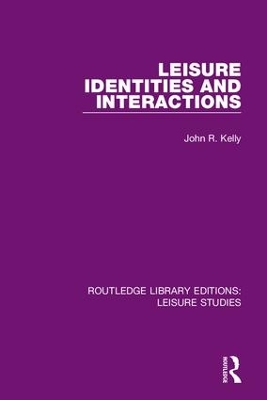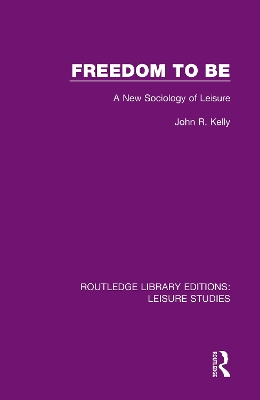Routledge Library Editions: Leisure Studies
2 total works
First published in 1983. Leisure has too often been approached as a set of activities that people do when everything important has been completed. This text provides a different analysis demonstrating the centrality of leisure to human development and to important relationships.
In Leisure Identities and Interactions the author analyses leisure in the context of role changes through the life course, but also as a social context in which we work out the identities that express who we really want to be. His focus is on the kinds of leisure that are both most common and most significant face-to-face encounters, family interaction, and episodes found in the midst of our roles and routines. Varieties of leisure styles are found to be developed out of available opportunities and in relation to cultural values, but also are chosen to express and negotiate our self-definitions. Leisure is both social and existential and can best be understood in the dialectic of role expectations and decision. Kelly utilizes symbolic interaction, interpretive, and dramaturgical metaphors to develop a different sociology of leisure one that brings together the concepts of role and identity. Expressive identities and intimate communities are as essential to leisure as they are to life.
First published in 1987. Following an introductory chapter on the nature of theory and the outline of the book, there are eight chapters on the explanatory approaches, or models, employed in this dialectical analysis of the leisure industry. These models focus on particular elements of leisure: experience, decision, development, identities, interaction, institutions, political forces, and human definitions. With a new preface to the re-issue by the author, this title will be of great interest to students of Sociology and Leisure Studies.

